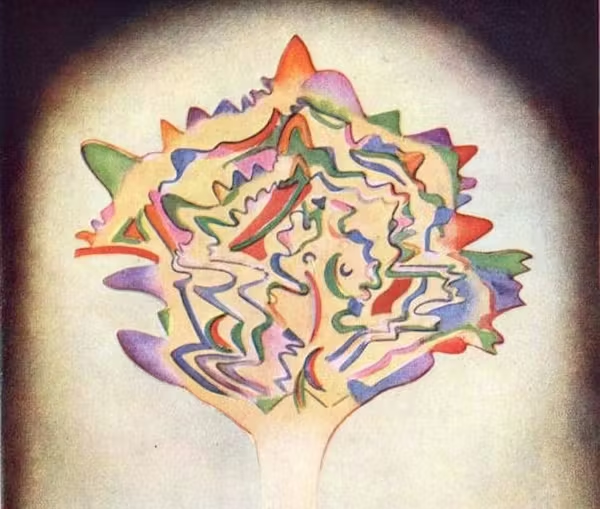
modernism

Victorian Occultism and the Art of Synesthesia
Grounded in the theory that ideas, emotions, and even events, can manifest as visible auras, Annie Besant and Charles Leadbeater’s Thought-Forms (1901) is an odd and intriguing work. Benjamin Breen explores these “synesthetic” abstractions and asks to what extent they, and the Victorian mysticism of which they were born, influenced the Modernist movement that flourished in the following decades. more

“Fevers of Curiosity”: Charles Baudelaire and the Convalescent Flâneur
This month marks the 200th anniversary of Charles Baudelaire’s birth, the French poet famous for his descriptions of the flâneur: a man of the crowd, who thrived in the metropolis’ multitude. Following Baudelaire through 19th-century Paris, Matthew Beaumont discovers a parallel archetype — the convalescent hero of modernity — who emerges from the sickbed into city streets with a feverish curiosity. more

Beastly Clues: T. S. Eliot, Torquemada, and the Modernist Crossword
Just a few years after The Waste Land appeared — a poem whose difficulty critics compared to some “pompous cross-word puzzle” — Edward Powys Mathers (alias: Torquemada) pioneered the cryptic: a puzzle form that, like modernist poetry, unwove language and rewove it anew. Roddy Howland Jackson reveals the pleasures and imaginative creatures lurking in Torquemada's lively grids. more

Eating and Reading with Katherine Mansfield
Like fast food and snacks, the short story has been derided as minor cuisine, ephemeral and insubstantial, light fare compared to the novel’s sustenance. For Katherine Mansfield, a great master of the form, eating offered a model for the sensuous consumption of her fiction — stories, in turn, that are filled with scenes of alimentary pleasure. On the centenary of the New Zealand writer’s death, Aimée Gasston samples her appetites. more

Pseudo-Boccaccio, Yiddish Pulp Fiction, and the Man Who Ripped Off Joyce
In 1927, a pair of lurid “translations” appeared in English, marketed as authentic tales by Giovanni Boccaccio and illustrated with supposedly new works by Aubrey Beardsley. Jonah Lubin and Maria Laurids Lazzarotti search for the origin of these fakes, in which illicit sex begets terrible violence, and uncover a story involving pseudotranslation, Yiddish shund literature, and the piracy king of literary modernism, Samuel Roth. more








